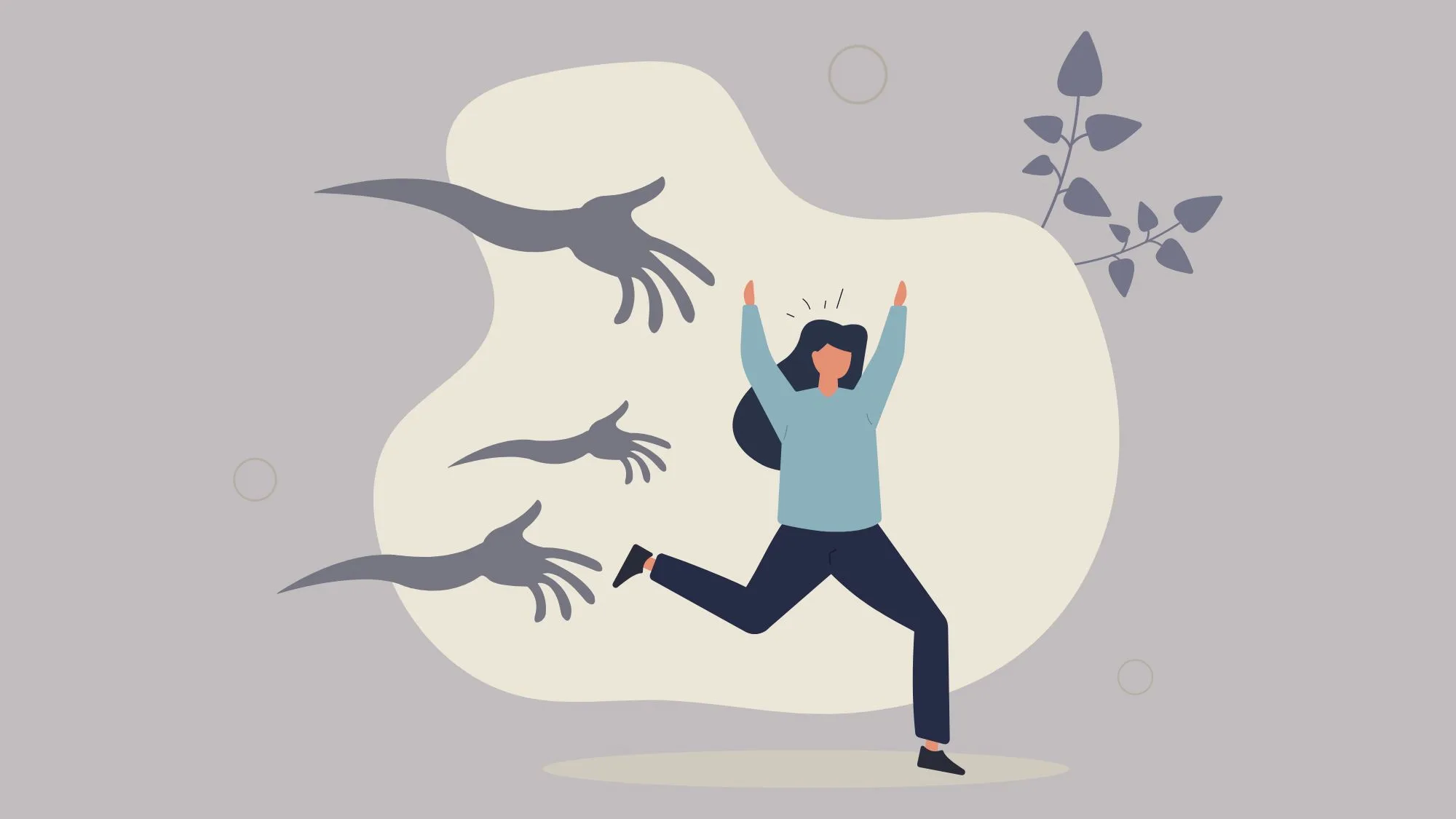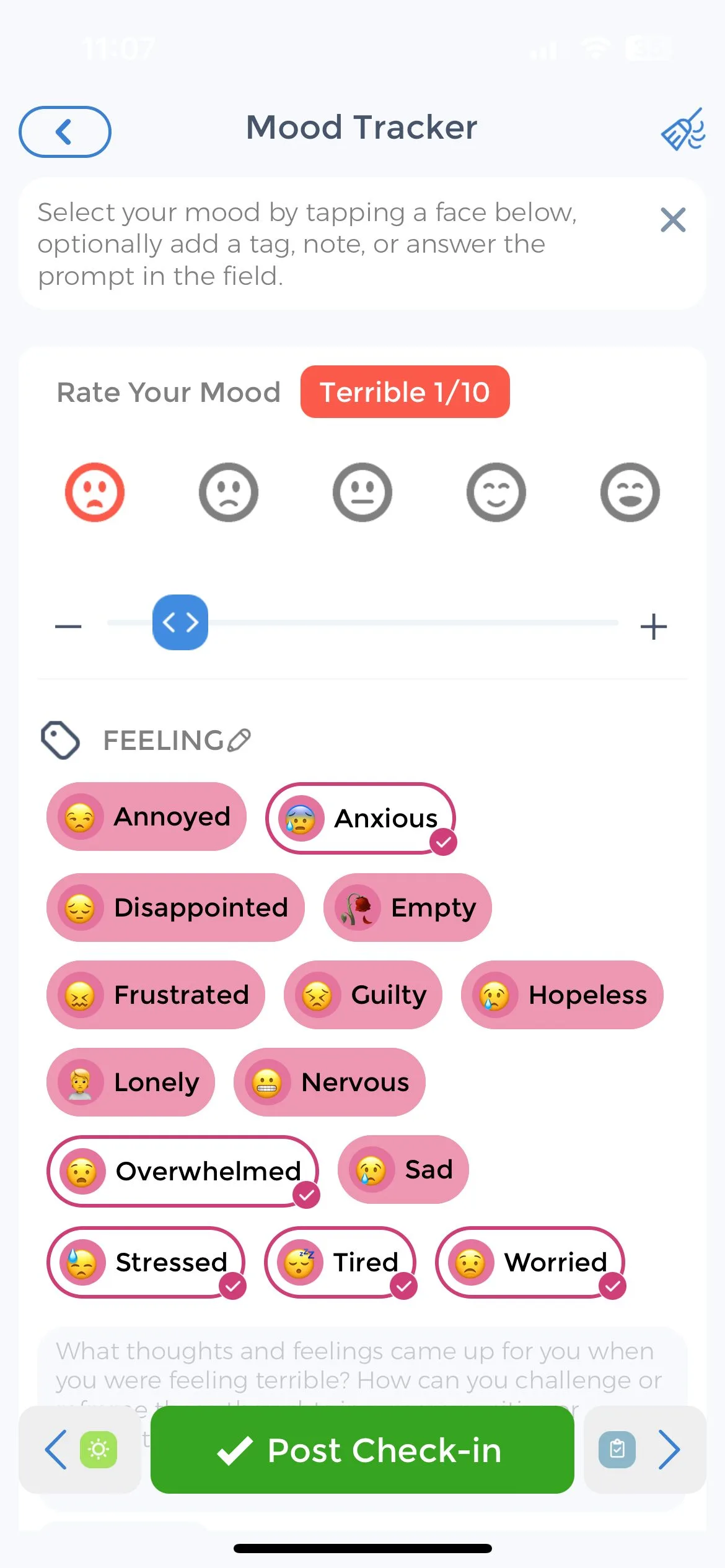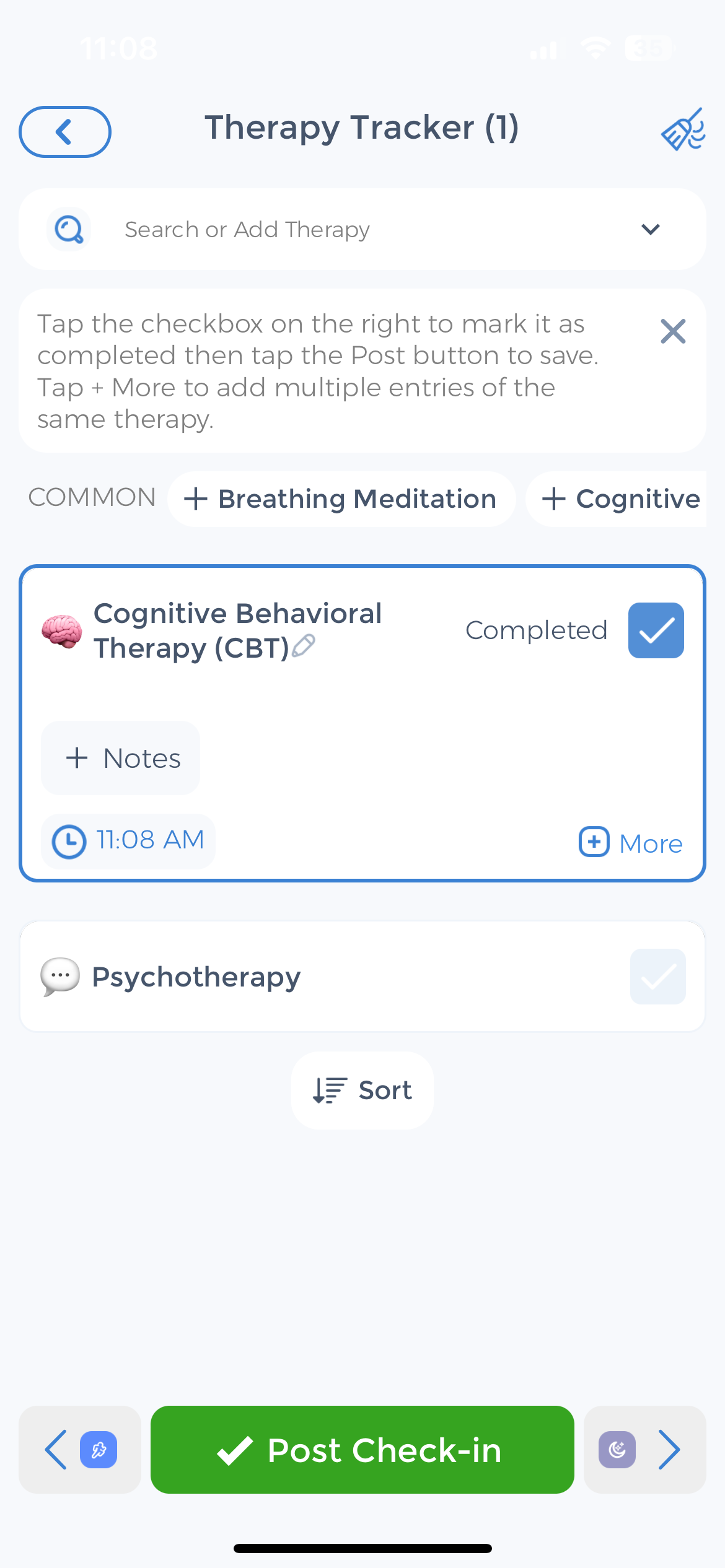
Anxiety attacks can be incredibly distressing and overwhelming, leaving you feeling frightened and out of control. It’s important to recognize the symptoms of an anxiety attack so that you can seek help and find the right coping mechanisms to manage them.
In this article, we will delve into what anxiety attacks are, how they differ from panic attacks, the various symptoms you may experience, the causes and triggers, coping mechanisms you can employ on your own, and when it may be necessary to seek professional help.
Understanding Anxiety Attacks
Anxiety attacks, also known as panic attacks, are intense episodes of fear or panic that can come on suddenly and without warning. These attacks can be triggered by specific situations, such as public speaking or flying, or they may occur seemingly out of the blue. Understanding what an anxiety attack entails is crucial for recognizing when you may be experiencing one.
What is an Anxiety Attack?
An anxiety attack is characterized by a sudden onset of an intense feeling of apprehension, fear, or terror. It is accompanied by a range of physical and psychological symptoms, which we will explore in detail later in this article.
The Difference Between Anxiety Attacks and Panic Attacks
While anxiety attacks and panic attacks are often used interchangeably, there are some slight differences between the two. Anxiety attacks are typically triggered by a specific fear or stressor, whereas panic attacks usually occur without any obvious trigger. Additionally, panic attacks often involve a more intense and immediate sense of terror, while anxiety attacks may build up gradually.
Now, let’s delve deeper into the physical symptoms that can accompany an anxiety attack. These symptoms can vary from person to person, but some common experiences include a rapid heartbeat, shortness of breath, chest pain or discomfort, dizziness or lightheadedness, trembling or shaking, and a feeling of impending doom. These physical sensations can be incredibly distressing and can further perpetuate the cycle of recurrent anxiety attacks.
On the psychological side, anxiety attacks can cause a wide range of symptoms as well. Some individuals may experience a sense of detachment from reality, a fear of losing control or going crazy, or a constant, irrational fear or worry that something terrible is about to happen. These thoughts and feelings can be overwhelming and can significantly impact a person’s quality of life.
It is important to note that anxiety attacks are not a sign of weakness or a character flaw. They are a legitimate medical condition that can affect anyone, regardless of age, gender, or background. Seeking professional help and support is crucial in managing mental illness and overcoming anxiety attacks.
Recognizing the Symptoms of an Anxiety Attack
Being able to identify the symptoms of an anxiety attack is essential for understanding what is happening to your body and mind. Here, we will discuss both the physical and emotional symptoms that commonly occur during an anxiety attack.
Physical Symptoms of Anxiety Attacks
During an anxiety attack, you may experience a combination of physical symptoms such as:
- Rapid heartbeat
- Shortness of breath or difficulty breathing
- Trembling or shaking
- Sweating
- Dizziness or lightheadedness
- Chest pain or discomfort
- Nausea or gastrointestinal distress
These physical sensations can be alarming, but it’s important to remember that they are a result of your body’s natural stress response.
Emotional Symptoms of Anxiety Attacks
Alongside the physical symptoms, anxiety attacks can also manifest emotionally. Some common emotional symptoms that worsen anxiety, include:
- Intense feelings of fear or apprehension
- A sense of impending doom or dread
- Feeling out of control or disconnected from reality
- Excessive worry or rumination
- Restlessness or irritability
- Trouble concentrating or focusing
These emotional symptoms can further exacerbate the distress caused by an anxiety attack.
Some people wonder if other conditions might make anxiety worse. For example, can pots be triggered by stress is a common question since POTS and anxiety often happen together. Understanding these connections helps you get the right support.
It is important to note that anxiety attacks can vary in intensity and duration. Some individuals may experience mild symptoms that subside relatively quickly, while others may have more severe and prolonged episodes. Additionally, the triggers for anxiety attacks can differ from person to person. While some may experience anxiety attacks in response to specific situations or events, others may have them seemingly out of the blue.
When experiencing an anxiety attack, it can be helpful to practice deep breathing exercises or engage in calming activities such as listening to soothing music or practicing mindfulness. Seeking support from a mental health professional can also provide valuable guidance and coping strategies for managing anxiety attacks.
The Causes and Triggers of Anxiety Attacks
Anxiety attacks can have both genetic and environmental factors that contribute to their occurrence. Understanding these causes and triggers can help you better manage your anxiety and prevent future attacks.
Genetic Factors and Anxiety Attacks
Research suggests that there may be a genetic component to anxiety disorders, including anxiety attacks. If you have a family history of anxiety or other mental disorders or health conditions, you may be more prone to experiencing anxiety attacks yourself. However, it’s important to note that genetics are only one piece of the puzzle.
Scientists have identified specific genes that may be involved in the development of anxiety disorders. These genes play a role in regulating neurotransmitters, the chemicals in the brain that transmit signals between nerve cells. Imbalances in these neurotransmitters, such as serotonin and dopamine, have been linked to anxiety and mood disorders.
Additionally, researchers have found that certain variations in the DNA sequence can increase the risk of developing anxiety disorders. These variations may affect the way the brain processes and responds to stress, making individuals more susceptible to anxiety attacks.
Environmental Triggers for Anxiety Attacks
Various environmental factors can trigger separation anxiety disorder and attacks in susceptible individuals. These triggers may include:
- Stressful life events, such as the loss of a loved one or job
- Traumatic experiences, such as accidents or violence
- Specific phobias or fears
- Chronic medical conditions or illnesses
- Substance abuse or withdrawal
It’s important to recognize that everyone’s triggers can be different. What may cause an anxiety attack in one person may not affect another person in the same way. Understanding your personal triggers is crucial in managing your anxiety and reducing the likelihood of future attacks.
Importance of Identifying History of Anxiety Symptoms
 One common trigger for anxiety attacks is a history of trauma. Traumatic experiences, such as physical or sexual abuse, can leave a lasting impact on an individual’s mental health. The brain’s response to trauma can become hypersensitive, leading to heightened anxiety levels and an increased risk of anxiety attacks.
One common trigger for anxiety attacks is a history of trauma. Traumatic experiences, such as physical or sexual abuse, can leave a lasting impact on an individual’s mental health. The brain’s response to trauma can become hypersensitive, leading to heightened anxiety levels and an increased risk of anxiety attacks.
Another environmental factor that can contribute to anxiety attacks is chronic stress. Prolonged exposure to high levels of stress can overload the body’s stress response system, leading to an increased likelihood of anxiety attacks. This can be particularly true for individuals who have demanding jobs, financial difficulties, medical illness, or unstable living situations.
Furthermore, certain phobias or fears can act as triggers for generalized anxiety disorder or attacks. For example, someone with a fear of flying may experience intense anxiety and panic when boarding an airplane. Similarly, individuals with social anxiety disorder may have anxiety attacks in social situations, such as public speaking or attending parties.
Overall, understanding the causes and triggers of anxiety attacks is essential in managing and preventing them. By identifying your personal triggers and seeking appropriate support, you can develop effective coping strategies and regain control over your anxiety.[1]
Coping Mechanisms for Anxiety Attacks
You don’t have to face anxiety attacks alone. There are several coping mechanisms and self-care strategies that can help you regain control and reduce the intensity of an anxiety attack.
Anxiety attacks can be overwhelming, but there are effective relaxation techniques that can help you navigate through them. In addition to deep breathing, there are other coping mechanisms that you can incorporate into your routine to manage anxiety attacks.
Breathing Techniques for Anxiety Attacks
One effective technique for managing anxiety attacks is deep breathing. By focusing on slow, deep breaths, you can activate your body’s natural relaxation response and calm your mind.
Managing anxiety attacks takes energy, and you need to be smart about how you use it. Learning what is spoon theory can help you understand why some days feel harder than others. This simple concept helps you pace yourself and save energy for what matters most.
Practice the following breathing exercise:
- Sit or lie down in a comfortable position
- Close your eyes and take a deep breath in through your nose, counting to four
- Hold your breath for a count of four
- Exhale slowly through your mouth, counting to four
- Repeat this pattern several times until you feel a sense of calm
This simple yet powerful technique can provide immediate relief during an anxiety attack.
Mindfulness and Meditation for Anxiety Management
Mindfulness and meditation practices can be beneficial for managing anxiety attacks. These practices involve intentionally focusing your attention on the present moment without judgment. By cultivating a sense of awareness and acceptance, mindfulness can help reduce anxiety and improve overall well-being.
Consider incorporating the following mindfulness exercise into your daily routine:
- Find a quiet and comfortable space
- Sit or lie down, paying attention to your body and the sensations it is experiencing
- Take a few deep breaths to ground yourself in the present moment
- Scan your body from head to toe, noticing any areas of tension or discomfort
- As you breathe, imagine sending your breath to these areas and allowing the tension to release
- Continue to focus on your breath and the sensations in your body, staying present and nonjudgmental
- Practice this exercise for a few minutes each day or as needed during an anxiety attack
Mindfulness and meditation can provide a sense of calm and perspective, allowing you to better manage anxiety attacks.
Another helpful coping mechanism for anxiety attacks is engaging in physical activity. Exercise releases endorphins, which are natural mood boosters. Whether it’s going for a run, practicing yoga, or taking a brisk walk, physical activity can help reduce anxiety and promote a sense of well-being.
Importance of Support Groups to Prevent Anxiety
In addition to breathing techniques, mindfulness, and physical activity, it can also be helpful to reach out to a support system. Talking to a trusted friend, family member, or therapist about your anxiety can provide you with a sense of validation, support group and understanding. They can offer guidance and support, helping you feel less alone in your journey.
Remember, coping with anxiety attacks is a personal process, and what works for one person may not work for another. It’s important to explore different coping mechanisms and find what resonates with you. With time and practice, you can develop a toolkit of strategies that empower you to manage anxiety attacks and live a fulfilling life.[2][3]
Seeking Professional Help for Anxiety Attacks
While self-care strategies can be effective, there may come a time when professional help is necessary to address your anxiety attacks. Understanding when to seek help and the available treatment options is essential for your overall well-being.
Anxiety attacks can be incredibly debilitating, causing intense feelings of fear, panic, and a loss of control. They can disrupt your daily life, making it difficult to concentrate, engage in social activities, or even leave your home. If you find that your anxiety attacks are severely impacting your daily life, relationships, or overall functioning, it may be time to seek professional help.
Attempting to manage anxiety attacks on your own can be challenging, especially if you have not seen any improvement in your symptoms. It’s important to remember that seeking help is not a sign of weakness, but rather a courageous step towards taking control of your mental health. By reaching out to a healthcare professional, they can assess your symptoms, provide an accurate diagnosis of health condition, and recommend appropriate treatment options.
Types of Therapies for Anxiety Attacks
There are several evidence-based therapies available for treating anxiety attacks, each with its own unique approach and benefits:

- Cognitive-behavioral therapy (CBT): This therapy focuses on changing negative thought patterns and behaviors that contribute to anxiety. Through CBT, you can learn effective coping strategies and develop a more positive mindset.
- Exposure therapy: This type of therapy gradually exposes individuals to their fears or triggers in a safe and controlled environment, helping to reduce anxiety responses. By facing your fears head-on, you can learn to overcome them and regain a sense of control.
- Medication: In some cases, medication may be prescribed to manage the symptoms of anxiety attacks. It is important to work closely with a healthcare professional to determine the most appropriate medication and dosage for your specific needs. Medication can be a valuable tool in conjunction with therapy to help alleviate symptoms and restore balance.
By seeking professional help, you can access the necessary support and guidance to effectively manage your anxiety attacks and improve your overall quality of life. Remember, you are not alone in your struggle with anxiety attacks. There are millions of individuals who have successfully navigated their way through this challenging journey and emerged stronger on the other side.
Understanding the symptoms, causes, and triggers of anxiety attacks is crucial in developing effective coping mechanisms. It’s important to practice self-care strategies such as deep breathing exercises, mindfulness meditation, regular exercise, and maintaining a healthy lifestyle. These practices can help reduce the frequency and intensity of anxiety attacks.
Remember, seeking professional help is a brave and proactive step towards taking control of your mental health. With the right support and treatment, you can overcome anxiety unexpected panic attacks, and live a fulfilling life. Stay tuned for more articles on mental health and self-care strategies to help you on your journey.[4][5][6]
Use the CareClinic App to Manage Panic Disorder and Anxiety Disorder
If you’re navigating the challenges of anxiety disorders, the CareClinic App can be a valuable ally in your journey toward better mental health. By using the app to track your symptoms, triggers, and coping strategies, you can gain insights into patterns that may contribute to your anxiety.
The CareClinic App offers features such as a mood tracker, medication reminders, and a health diary, allowing you to monitor your progress and stay on top of your treatment plan. With these tools, you can work towards understanding your anxiety and developing personalized strategies to manage it effectively.
Download the CareClinic App and Start to Monitor Panic Attack
Take the first step towards improved health outcomes by installing the CareClinic App. The app’s user-friendly interface makes it easy to record and review your daily experiences, helping you to identify what works best for you in managing panic attacks.
By consistently using the CareClinic App, you can create a comprehensive mental health provider call report that can be shared with your healthcare provider, enhancing the quality of care you receive. Don’t let anxiety control your life; install the app today and empower yourself with the knowledge and support you need to thrive.[7]
References
- “Genetic factors in anxiety disorders”. https://pubmed.ncbi.nlm.nih.gov/25225016/
- “3 Breathing techniques for whenever you feel anxious – The American Institute of Stress”. https://www.stress.org/news/3-breathing-techniques-for-whenever-you-feel-anxious/
- “Meditation May Be the Key to Managing Anxiety”. https://time.com/4646008/mindfulness-meditation-stress/
- “Cognitive-behavioral therapy for anxiety disorders: an update on the empirical evidence – PMC”. https://pmc.ncbi.nlm.nih.gov/articles/PMC4610618/
- “Acceptance and commitment therapy”. https://en.wikipedia.org/wiki/Acceptance_and_commitment_therapy
- “When to Contact a Doctor for Anxiety and Panic Attacks”. https://resources.healthgrades.com/right-care/anxiety-disorders/when-to-see-a-doctor-for-anxiety-and-panic-attacks
- “Anxiety disorder”. https://en.wikipedia.org/wiki/Anxiety_disorder


